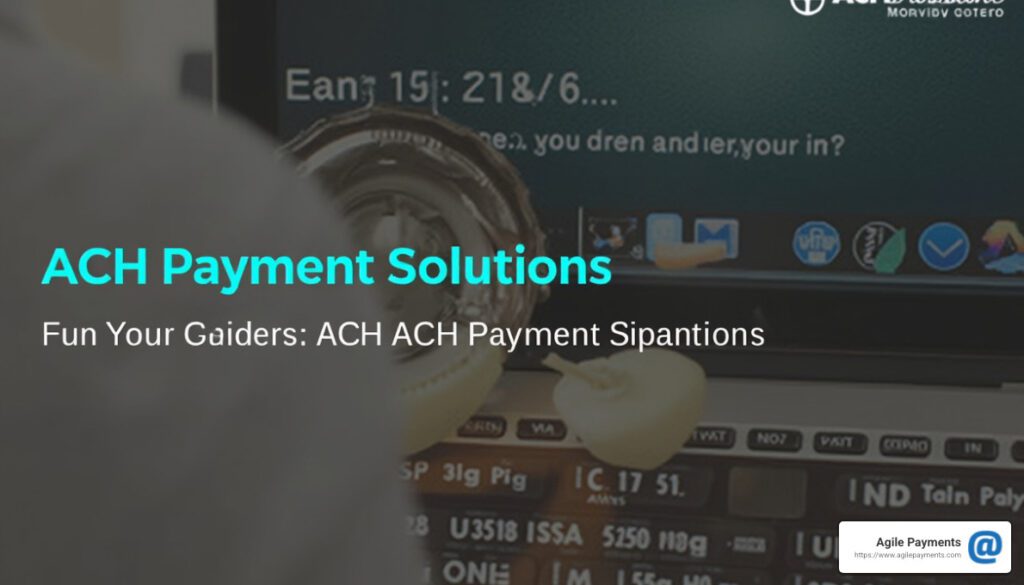As the idea of Payment Facilitation gains traction, more and more SaaS companies are exploring becoming a PayFac. Conceptually, it is an attractive feature to introduce: fast, easy, onboarding and new means of revenue generation. In fact, independent software vendors and SaaS companies are poised to generate $4.4 billion in revenue from payment processing alone by 2021.
There exists a number of issues that need consideration prior to becoming a Payment Facilitator or Payfac, however. While the benefits of facilitation are clear, companies cannot overlook the essentials of selecting a facilitation partner. The nature of your partnership will be key in ensuring appropriate customer service, profit generation and risk or liability mitigation.

Based on years of guiding companies in the facilitation process, the Agile Payments team has developed this checklist for evaluating potential Payfac partners –
A partner – doesn’t only rely on out-of-the box integration solutions for software application payment integration clients. Instead, look for a partner that has examined every aspect of the application’s requirements. This diligence should culminate in a proposed path for a successful payments integration – and may include recommendations on standard or custom solutioning.
2. A partner – understands that your clients rely on payment integration as a profit tool. The Payfac partner you choose should provide options based on your SaaS application’s requirements and strike a balance between profitability and reducing price friction. Their recommendations should lead to the establishment of a planned agreement for residual profit.
3. A partner – understands your user base. There is no one-size-fits-all solution. Choose a payments partner that can help you customize your Payfac service to meet the needs of your specific user profile. Specific use case handling, like heavier recurring billing demands, for example, should be factored in.
4. A partner – understands payment compliance. Payment Card Industry Compliance is one of the most important criteria for Payment Facilitators to understand. It is also one of the most complicated. PCI is a set of security standards companies must comply with if they accept, process, or store consumers’ credit card information. The PCI Security Standards Council has outlined twelve specific requirements and each is meant to ensure the maintenance of secure card information environments. It’s crucial that your Payfac partner understands PCI compliance in order to protect your company from penalties or the termination of your card acceptance agreement.
5. A partner – offers an ACH option for recurring billing. Providing an ACH payment processing solution gives your customers an additional option for accepting payments, as well as providing other benefits. And if your SaaS product offers recurring payment functionality then ACH transaction integration is critical to minimize credit card declines. Decline rates, which average 15%, can erode profit. In contrast, ACH payment processing return rates are typically less than 2%. The severity of loss related to card declines and hassle of updating card billing information should drive inclusion of ACH in your solution.
6. A partner – supports channel setup and management. If you’re not working with one of the larger players in payment processing, such as PayPal or Stripe, onboarding for accepting payments won’t be immediate. Of course, the benefit in choosing not to work with a big name provider is improved margin in payment transactions. Make sure the provider you choose to work with offers adequate support during your initial setup and onboarding, and has an established customer service reputation.
payment processing, such as PayPal or Stripe, onboarding for accepting payments won’t be immediate. Of course, the benefit in choosing not to work with a big name provider is improved margin in payment transactions. Make sure the provider you choose to work with offers adequate support during your initial setup and onboarding, and has an established customer service reputation.
7. A partner – can explain potential liabilities and risks. Liability fears – coupled with fast onboarding – are major reasons why SaaS companies choose to partner with big-name facilitators such as PayPal, Stripe and Square. The Payfac partner you choose should be able to clearly communicate to you the risks involved in payment processing. They should address fraud loss, chargebacks and non-payment, and ideally outline options for mitigating said risks.
As you explore Payfac partners it is essential that they truly get your business and propose solutions to meet the specific needs of your platform and customer base.
For more than 17 years, Agile Payments has been providing integrated payments solutions to businesses. If you’d like more information about the variety of payment facilitation options available and which might be best for your company, contact us today.


 payment processing, such as PayPal or Stripe, onboarding for accepting payments won’t be immediate. Of course, the benefit in choosing not to work with a big name provider is improved margin in payment transactions. Make sure the provider you choose to work with offers adequate support during your initial setup and onboarding, and has an established customer service reputation.
payment processing, such as PayPal or Stripe, onboarding for accepting payments won’t be immediate. Of course, the benefit in choosing not to work with a big name provider is improved margin in payment transactions. Make sure the provider you choose to work with offers adequate support during your initial setup and onboarding, and has an established customer service reputation.


